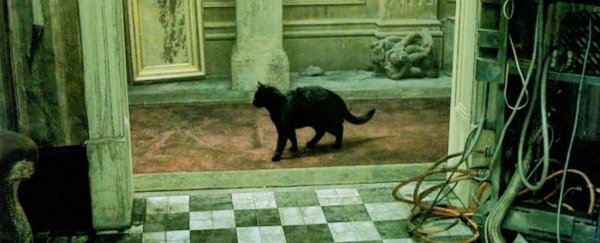In French, déjà vu literally translates to "already seen", and describes the phenomenon of having the strong feeling that the experience you're having right now has already been experienced by you in the past.
It's clearly not a glitch in the Matrix, but scientists have been struggling for centuries to explain what prompts a feeling of déjà vu - and why. But now a team of neuroscientists just might have an answer.
Led by Akira O'Connor from the University of St Andrews in the UK, the team figured out how to trigger a feeling of déjà vu in a lab setting - making something that's spontaneous, fleeting, and unpredictable a little bit easier to nail down.
They did this by slightly tweaking a neat trick used by neuroscientists to implant false memories in the minds of their participants.
As Jessica Hamzelou explains for New Scientist, this involves reciting a list of related words, such as bed, pillow, night, and dream, but deliberately leaving out the single, most obvious word that links them all - in this case, sleep.
The participants are later asked about all the words they were told, and more often than not, will swear they heard "sleep", along with the others.
So that's how you implant a false memory, but it's not quite the same thing as déjà vu. So O'Connor and his team added a step.
In the first part of the experiment, where the participants were hearing the related words, the researchers asked them if they'd heard a word starting with "S". Of course, they hadn't, so the participants replied "No."
Later, when the participants were asked to recall all the words they'd heard, they knew from earlier that they hadn't heard a word starting with "S", but at the same time, the false memory of sleep had been implanted, so it somehow felt familiar.
"They report having this strange experience of déjà vu," O'Connor told Hamzelou.
Trying this technique out on 21 participants, the researchers observed what was happening in their brains as they experienced the feeling of déjà vu.
Interestingly, even though the technique involved a memory exercise and the participants were given a false memory, the parts of the brain related to memory weren't the ones that lit up in the fMRI scans.
At the International Conference on Memory in Budapest, Hungary, last month, O'Connor told his peers that during the experience of déjà vu, frontal areas of the brain associated with decision-making were activated.
So what does decision-making have to do with the feeling that you've experienced something before? O'Connor told New Scientist that he suspects the feeling is caused by the brain sifting through its memory bank, and signalling that there's some kind of error - I feel like I've experienced this before, but have no memory of it.
Just like sitting in a car makes our brains freak out because part of us thinks we're moving and part of us thinks we're staying still - a conflict that can often result in a very physical (and sometimes messy) response - the conflict in thinking you have a specific memory but don't results in a very distinct feeling.
"It suggests there may be some conflict resolution going on in the brain during déjà vu," Stefan Köhler from the University of Western Ontario in Canada, who wasn't involved in the study, told New Scientist.
To be clear, the study is a very small one, and the results have yet to be formally peer-reviewed, so we're talking about very early findings here, and speculations that need to be backed up by further, much larger experiments.
There's also the fact that artificially triggered episodes of déjà vu might be so different to the déjà vu we experience 'in the wild', that the results don't actually reflect what's really going on.
But it's an intriguing starting point, and puts us on a different path from the conventional wisdom that just put déjà vu down to some particularly strong false memories. It could be something far more complex than that.
O'Connor and his team are continuing their investigation, and hope to figure out what's going on in the minds of people who never experience déjà vu - around 60 to 80 percent of people have reportedly experienced it - and whether or not it's a good thing for our brains to do.
On the one hand, it might be beneficial, because déjà vu signals that our brain's ability to check the memory bank is in good working order, but on he other, maybe it's just making us paranoid.
"It could be that déjà vu experiences make people cautious, because they might not trust their memory as much," says Köhler. "But we don't have any evidence for that yet."
Another hypothesis that the team might have to address at some point is that déjà vu could be triggered by the rhinal neural system, thought to be involved in the detection of familiarity.
As psychologist Amy Reichelt from RMIT University in Australia explained for The Conversation, activation of the rhinal neural system occurs without activation of the memory system in the hippocampus. "This leads to the feeling of recognition without specific details," she says - a conflict in the brain that could result in the feeling of déjà vu.
And btw, if you think you experience déjà vu a lot, spare a thought for this 23-year-old man in the UK, who is reportedly stuck in an ongoing eight-year loop of déjà vu. Groundhog Day IRL is a whole lot less funny without that fat, prescient rodent.

